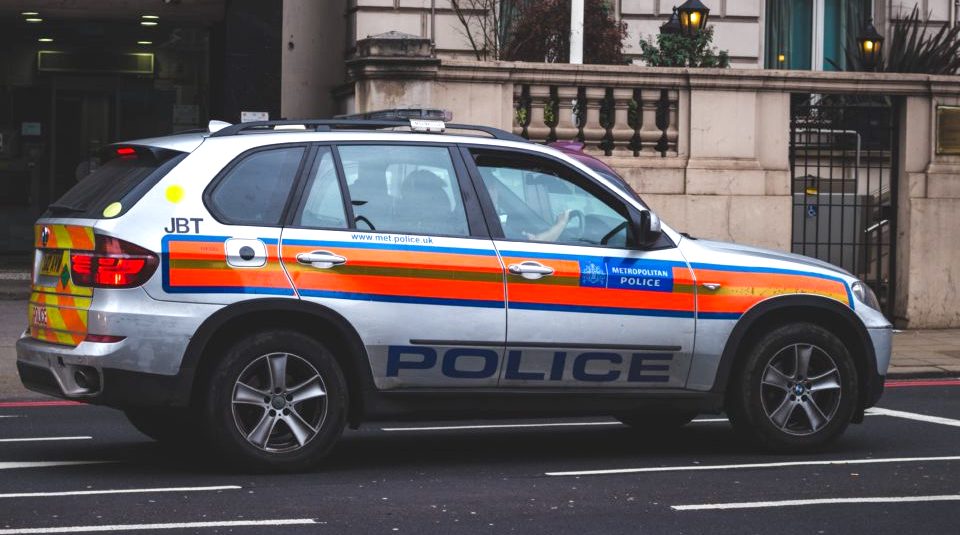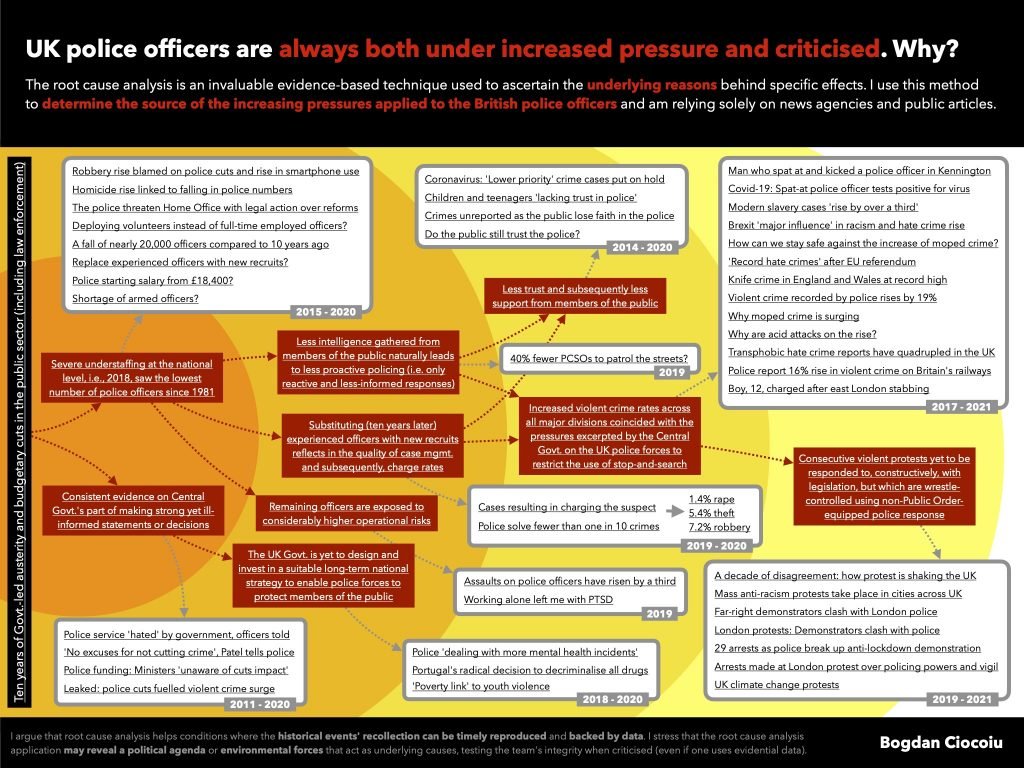The purpose of this article is to demonstrate at a high level the capabilities of the root cause analysis tool and how one might want to use it to identify the underlying reasons why programmes, organisations, public departments or groups of groups of people operating in a structured way, do not achieve the objectives sought.
Introduction
Unless you live in a cave, you would have noticed a constantly increased volume of sheer criticism and hostility pointed at British police officers, and I am keen to know the root cause of this. Evidence shows this has been the case during the last ten years. Also, evidence shows these effects have been exacerbated gradually in the second half of the previous decade.

In my day to day work, I apply root cause analysis (“RCA”) as often as possible to identify the underlying cause of why things go wrong in programmes or organisations. When leveraging the RCA tool, I find it necessary always to make evidence-based decisions and avoid introducing any subjective perspectives.
The assumptions
To respond to why police officers are subject to so much criticism and resentment, including violent nature, I had to understand the relationship between the UK Central Government and national police forces. When I say relationship, I am referring to two main known, high-level interactions:
- The process of enacting legislation driven by the Central Government, which then gets passed to the law enforcement agencies with the expectation that the bills are applied or enforced using whatever resources already exist at the time when the legislation enters effect (which can be any time during the year)
- The process of allocating annual budgets for police resources, a process which Central Government also drives, supplemented occasionally and partially by local administrations (i.e. councils) who might be selling local assets (i.e. smaller police stations) to have enough money to pay police officers’ salaries, during that financial year.
The root cause analysis
Using the above assumptions, I collated numerous articles from 2010 to March 2021, which I categorised based on the themes they represented. Given this objective is to demonstrate a high level of the root cause analysis tool’s capabilities, the list of articles I extracted is nowhere near exhaustive, yet it seeks to paint a broad picture of the events’ scale.
I have then drawn linkages between the themes, showing their relationships. I find this essential to understand what led to today’s state in the UK, which puts UK police forces to respond to numerous violent protests regularly and how that ties in with the increased crime rates and other themes I merely extracted from BBC articles.
The result of the root cause analysis
The result is helpful because I can now point people to this link instead of playing-back historical events every time I go over this story. It also helps because infographics are compelling ways of conveying messages instead of neverending narratives.
It is also important to argue that my interpretation does not influence the analysis because this study relies solely on the BBC’s and other reputable press agencies’ articles.
Download resources
- Download root cause analysis of the increased pressures the UK police officers are facing as a JPG file or
- Download the same resource as a PDF file, i.e. use the PDF file to click on the BBC and other agencies’ news article links




